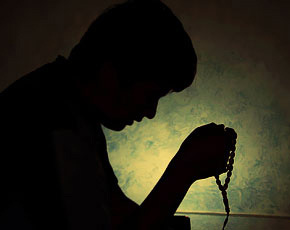For starters, let’s recount a few reported incidents of persecution carried out to “safeguard Islam” these past few days: minarets destroyed at Ahmadi places of worship, mentally unstable man burnt alive for blasphemy, Ahmadi leader gunned down.
Not only is such persecution in contravention of many of Pakistan’s international human rights law obligations but it could not exist without the socially sanctioned public hypocrisy that breathes life into it.
That is, major blame for religious oppression in Pakistan, contrary to the conventional account, lies not with the weak and ineffective state that is unable or unwilling to protect minorities, but with much of Pakistani society that refuses to extend religious freedom to others even as they themselves seek its benefits abroad.
Pakistani and other Muslims living in the United States and Europe fully enjoy the religious rights granted to minorities in those states – without fearing for their life or property - whilst refusing to reciprocate when religious minorities back home are deprived of those same rights.
We allege blasphemy when others worship according to their beliefs yet we freely peddle doctrine that could very well be deemed blasphemous and certainly very offensive to orthodox Christian beliefs, for example, the view that Hazrat Isa/Jesus Christ was simply a prophet and not divine. We build grand mosques, open faith-based schools, and disseminate religious literature and convert others to Islam – yet no one – neither the state nor its people - threatens to injure or kill us for doing so.
Yet, when the question of religious freedom in Muslim countries is raised, say, the treatment of Ahmaddiyas in Pakistan or the fact that churches aren’t allowed in Saudi Arabia or why people should be killed when they wish to leave the Muslim faith, the perspective suddenly changes. It is not unusual to find a barrage of people ready to jump over each other to justify the Janus faced oppression.
They remain ready and armed with fatwas to provide the usual religiously grounded, circular and self-centered defenses for the persecution of others: he or she committed “blasphemy” or is deceptively claiming to be a Muslim but they aren’t really because they don’t believe in this or that doctrine or that the mufti has decreed that all Christian churches must be destroyed. Take this for example: a survey conducted in 2009 indicates that three quarters of Pakistanis surveyed favor the use of the death penalty for anyone who leaves Islam.
Further, we jealously guard our religious freedom from encroachment. When disagreeable restrictions such as the Burqa ban or the right to build a religious center near the site of the World Trade Center are proposed, many appropriately highlight victimisation and witch hunts. We protest and complain that Muslims are being singled out because of religion. Yet, we refuse to see the wrong in similarly oppressive behavior back in Pakistan when others are singled out precisely because they belong to a different denomination or faith.
Why such blind hypocrisy? Why has a state that was founded to provide sanctuary for a vulnerable religious minority become home to a majority that allows religious persecution?
Those who seek equity must do equity themselves. Such myopic self-righteousness only strengthens the position of those who advocate for the curtailment of religious liberty for Muslims abroad.
Also, if one is so confident that his or her creed or sect is the only authentic one, then why fear competition from other sects or religions. Why impose artificial barriers to the free exercise of religion such as the blasphemy law in the hope of monopolising the market for religion?
In fact, research by economists who study religion demonstrates that belief in religion tends to be stronger in states that do not hinder the free exercise of religion.
That is, imposition and monopolies in religion don’t usually work. Religious ideas proliferate and become preeminent by being just and appealing, not by killing off the competition. When Prophet Muhammad preached monotheism, egalitarianism, tolerance, women’s rights and other good virtues centuries back, there was a reason why masses were willing to quickly forego the ancient beliefs of their ancestors to flock to this novel faith.
Is there hope for change? Perhaps but the focal point of change should not be the Pakistani state. Tweaking laws and pressuring the government will only take you so far until mass appeal, whether through religion, law, morality or reason, can be made to arrest these prevalent social norms that power such hypocritical behavior.
Dawood I. Ahmed has previously practiced as a solicitor in England and is currently pursuing a doctorate in international law at UChicago.
The views expressed by this blogger and in the following reader comments do not necessarily reflect the views and policies of the Dawn Media Group.
Dr Dawood Ahmed is a Research Fellow at the Comparative Constitutions Project and has developed (with his co-author) the Islamic Constitutions Index.
He tweets @DawoodIAhmed.















































